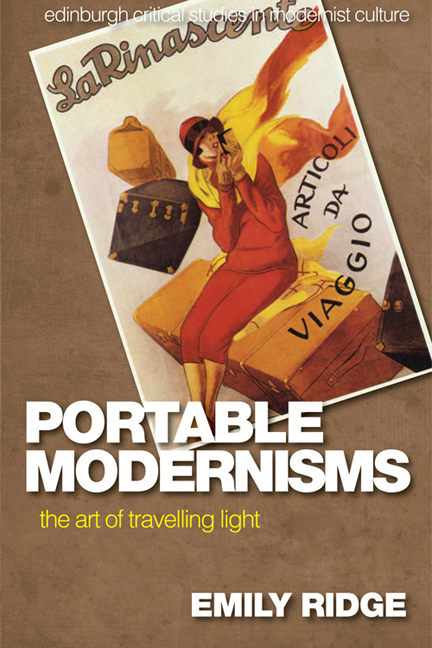Book contents
- Frontmatter
- Contents
- Illustrations
- Acknowledgements
- Series Editors’ Preface
- Dedication
- Introduction
- 1 ‘Living modernly's living quickly’: Towards Travelling Light
- 2 ‘A purse of her own’: Women and Carriage
- 3 ‘No one is safe from the beggar's pack’: Portability and Precarity
- 4 ‘Have you anything to declare?’: Portable Selves on Trial
- Conclusion
- Bibliography
- Index
4 - ‘Have you anything to declare?’: Portable Selves on Trial
Published online by Cambridge University Press: 22 December 2017
- Frontmatter
- Contents
- Illustrations
- Acknowledgements
- Series Editors’ Preface
- Dedication
- Introduction
- 1 ‘Living modernly's living quickly’: Towards Travelling Light
- 2 ‘A purse of her own’: Women and Carriage
- 3 ‘No one is safe from the beggar's pack’: Portability and Precarity
- 4 ‘Have you anything to declare?’: Portable Selves on Trial
- Conclusion
- Bibliography
- Index
Summary
Chests, especially small caskets, over which we have more complete mastery, are objects that may be opened. When a casket is closed, it is returned to the general community of objects; it takes its place in exterior space. But it opens!
In discussing Freud's Fragment of an Analysis of a Case of Hysteria in Chapter 2, I alluded to Gaston Bachelard's phenomenological appraisal of hidingplaces in The Poetics of Space, his study of the ‘topography of our intimate beings’ as mapped out in the structure of the house. Some of his further remarks on this subject make for a suggestive starting-point for the chapter to follow. Bachelard sees small containers as concentrated points of intimate expression, evidence of the human ‘need for secrecy’ but also of the human need to uncover secrets; these containers, we are told, are ‘unforgettable for us but also unforgettable for those to whom we are going to give our treasures’. This chapter will focus on the dynamics of containment and disclosure enacted through the more specific framework of the portable casket or case, often foregrounded as a source of intrigue in modernist writing in offering a point of access to a character in transit. Part of what made luggage an apposite index of character was its frequent fabrication, during this period, from the skin of an animal, whether cowhide or crocodile skin. This was a disconcerting human affinity certain writers hinted at and one neatly articulated by early-twentiethcentury French diplomat, writer and perpetual traveller Paul Morand: ‘When I die, I'd like them to make a trunk from my skin.’ Luggage can be seen thus to represent both the materialisation and the mobilisation of the private space of the self in a number of modernist texts, capturing the intimate being in motion but also under an unpredictable form of public scrutiny. Intrigue is the keynote in the game of concealment and revelation recurrently played out. The luxury luggage designer Louis Vuitton astutely exploited the playful aspect of this game of intrigue in the slogan ‘Montre-moi tes bagages et je te dirai qui tu es’/’Show me your luggage and I'll tell you who you are’, used for a 1921 advertising campaign.
- Type
- Chapter
- Information
- Portable ModernismsThe Art of Travelling Light, pp. 144 - 183Publisher: Edinburgh University PressPrint publication year: 2017

